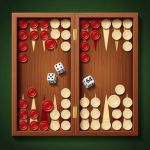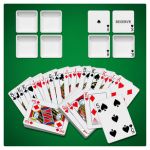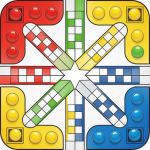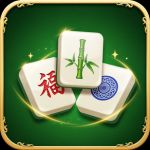Xiangqi

GAME INFO
Xiangqi, also known as Chinese Chess, is one of the most popular and enduring board games in the world. With a history spanning over a thousand years, Xiangqi is a game of deep strategy, tactical brilliance, and intellectual challenge. Played on a unique board with distinct pieces and rules, the game is a fascinating blend of simplicity and complexity, making it a favorite among players of all ages and skill levels.
Rooted in Chinese culture and philosophy, Xiangqi reflects the art of war, where two armies face off in a battle of wits and strategy. The objective is to capture the opponent’s General (or King), while protecting your own, using a combination of offensive and defensive maneuvers. With its rich history, unique gameplay mechanics, and endless strategic possibilities, Xiangqi is a timeless classic that continues to captivate players around the globe.
The Premise of Xiangqi
The premise of Xiangqi is simple yet profound: two players command opposing armies, represented by pieces on a board, with the ultimate goal of capturing the opponent’s General. The game is a simulation of a battlefield, where each piece represents a specific role in the army, such as soldiers, chariots, horses, and cannons. Players must use their pieces strategically to attack, defend, and outmaneuver their opponent.
The game is played on a rectangular board divided into 10 horizontal rows and 9 vertical columns, with a "river" running horizontally across the middle. The river divides the board into two territories, one for each player, and adds a unique layer of strategy to the game. Certain pieces, such as the Elephant, are restricted to their own side of the river, while others, like the Cannon, have special movement and attack rules that make them powerful tools in battle.
The combination of unique pieces, a distinctive board layout, and intricate rules creates a game that is both challenging and rewarding, offering endless opportunities for strategic thinking and creative play.
Gameplay Mechanics
Xiangqi is a game of strategy and tactics, where players must carefully plan their moves and anticipate their opponent’s actions. Here’s a breakdown of the core gameplay mechanics:
-
The Board and Setup The Xiangqi board consists of 10 rows and 9 columns, with a total of 90 intersections where the pieces are placed. Unlike Western chess, the pieces are placed on the intersections of the lines, rather than within the squares. The board is divided into two territories by a horizontal "river," and each player has a "palace" (a 3x3 grid) where their General and Advisors are confined.
At the start of the game, each player’s pieces are arranged in a specific formation:
- General (King): Placed in the center of the palace.
- Advisors (Guards): Positioned on either side of the General within the palace.
- Elephants (Ministers): Placed next to the Advisors.
- Horses (Knights): Positioned next to the Elephants.
- Chariots (Rooks): Placed at the corners of the board.
- Cannons: Positioned on the second row, two spaces from the edges.
- Soldiers (Pawns): Placed on the third row, one on each odd-numbered column.
-
Piece Movement and Rules Each piece in Xiangqi has unique movement and attack rules, which add depth and complexity to the game. Here’s an overview of the pieces and their movements:
- General (King): Moves one step horizontally or vertically within the palace. The General cannot leave the palace and must avoid being in the same column as the opposing General without an intervening piece (a rule known as "flying General").
- Advisors (Guards): Move one step diagonally within the palace. They are restricted to the 3x3 palace grid.
- Elephants (Ministers): Move two steps diagonally and cannot cross the river. They are blocked if an intervening piece is in their path.
- Horses (Knights): Move in an "L" shape (two steps in one direction and one step perpendicular). They are blocked if the first step is occupied.
- Chariots (Rooks): Move any number of steps horizontally or vertically, similar to the rook in Western chess.
- Cannons: Move like the Chariot but attack by jumping over exactly one piece (called the "screen") to capture an opponent’s piece.
- Soldiers (Pawns): Move one step forward before crossing the river. After crossing the river, they can also move one step horizontally. They cannot move backward.
-
Objective and Winning the Game The objective of Xiangqi is to checkmate the opponent’s General, meaning the General is under attack and cannot escape capture. Players must use their pieces strategically to create threats, control key positions, and protect their own General.
The game can also end in a draw if neither player can achieve checkmate, or if both players agree to a stalemate.
-
The River and Palace The river and palace are unique features of the Xiangqi board that influence gameplay:
- The river divides the board into two territories and restricts the movement of certain pieces, such as the Elephant.
- The palace confines the movement of the General and Advisors, creating a defensive zone that players must protect.
These features add strategic depth to the game, as players must navigate the constraints of the board while planning their attacks and defenses.
-
Strategic Elements Xiangqi is a game of strategy, where players must balance offense and defense, control key positions, and anticipate their opponent’s moves. Key strategic elements include:
- Piece Coordination: Using multiple pieces in combination to create threats and control the board.
- Tempo: Maintaining the initiative by forcing the opponent to respond to your moves.
- Positioning: Placing pieces in optimal positions to maximize their effectiveness and limit the opponent’s options.
- Endgame Tactics: Planning for the endgame by preserving key pieces and creating opportunities to checkmate the opponent’s General.
Variations and Cultural Significance
Xiangqi has a rich history and cultural significance in China and other parts of Asia. The game is often played in parks, tea houses, and homes, bringing people together for friendly competition and social interaction. Over the centuries, various regional variations of Xiangqi have emerged, each with unique rules and traditions.
Some popular variations include:
- Blindfold Xiangqi: Players compete without seeing the board, relying on memory and visualization.
- Fast Xiangqi: A timed version of the game where players must make moves quickly.
- Puzzle Challenges: Players solve pre-arranged board positions to achieve specific objectives, such as checkmate in a certain number of moves.
These variations add variety and replayability to the game, ensuring that players of all skill levels can enjoy Xiangqi in different ways.
A Timeless Classic
One of the reasons Xiangqi has endured for centuries is its perfect balance of simplicity and complexity. The game’s rules are easy to learn, but its strategic depth offers endless opportunities for exploration and mastery. Whether you’re a beginner learning the basics or an experienced player honing your skills, Xiangqi provides a rewarding and intellectually stimulating experience.
Why Xiangqi Stands Out
Xiangqi is more than just a board game—it’s a cultural treasure that reflects the art of strategy, the philosophy of balance, and the joy of competition. Its unique mechanics, rich history, and global appeal make it a game that transcends generations and borders.
The game’s emphasis on strategy, creativity, and critical thinking makes it both entertaining and intellectually enriching. Whether you’re playing for fun, competing in tournaments, or studying the game’s intricacies, Xiangqi offers a timeless and rewarding experience.
Conclusion
Xiangqi is a game that combines the excitement of strategy with the beauty of tradition. With its unique board, distinct pieces, and deep gameplay, it’s a game that will captivate players and leave a lasting impression. Whether you’re commanding your army, outmaneuvering your opponent, or mastering the art of war, Xiangqi offers a fun and unforgettable journey into the world of strategy and tactics.
So gather your pieces, sharpen your mind, and get ready to immerse yourself in the ancient and fascinating world of Xiangqi. The battlefield awaits—will you emerge victorious?












